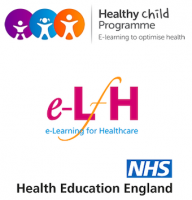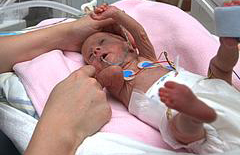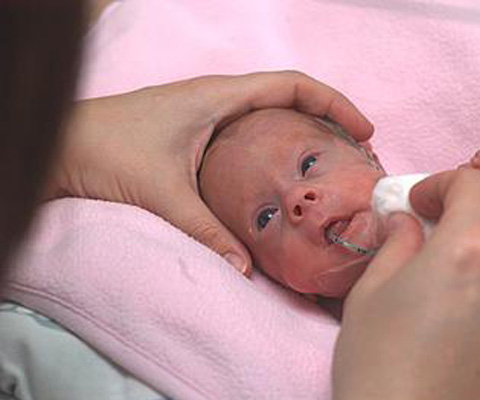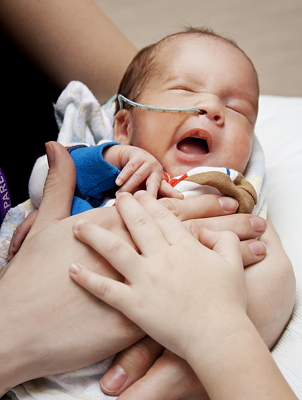Feeding Preterm Infants in Neonatal Units course for General Practitioners



This session is designed to introduce you to the nutritional needs of the preterm infant. It is designed to take you through some of the nutritional factors affecting preterm infants, including preterm nutritional requirements, growth and feeding methods and establishing feeds. In this session we will also focus on preterm enteral feeding including the use of preterm breastmilk, donor human milk (donor breastmilk) and formula and establishing onto oral feeding.
Learning Objectives
By the end of this session you will be able to:
- List the nutritional requirements and how to meet them to support optimal growth of preterm infants in neonatal units and following discharge
- Decide when preterm infants need parenteral nutrition and enteral nutrition
- Describe the optimal initiation and progression regimens for parenteral nutrition and enteral nutrition
- List the nutritional and non-nutritional advantages of breastmilk for the preterm infants compared to infant formula
- Advise mothers of preterm infants on overcoming the challenges of establishing lactation and breastfeeding
- Advise parents on the use of specialist infant formulas available for in-patient and discharged preterm infants
- Advise parents on the use of donor human milk from a UK milk bank as a supplement in the event of insufficient maternal milk
This session will discuss the nutritional requirements for preterm infants including the use of breastmilk, donor human milk and specialist infant formulas, whilst supporting maternal lactation and breastfeeding. There are many challenges involved in feeding the preterm infant and the ultimate aim is to achieve expected growth whilst supporting maternal lactation and breastfeeding.
Karen Hayes is a Registered Dietitian. After working in hospitals in London she moved to Cambridge and works as the Neonatal Dietitian on the Regional Neonatal Surgical Unit at Cambridge University Hospitals NHS Trust (Addenbrooke’s Hospital).
Karen’s interests are in all aspects of neonatal nutrition but she has a particular interest in the complex nutritional needs of the preterm surgical infant. Karen is a member of the British Dietetic Association’s Paediatric Group and the Neonatal Dietitian’s Interest Group (NDIG).

- Assessing Mental Capacity in Older People course f...
- Posted By eIntegrity Healthcare e-Learning
- Posted Date: 2025-01-04
- Location:Online
- Mental capacity is the ability to take actions affecting daily life. This session provides an overvi...
- Long-term Care of People with Dementia course for ...
- Posted By eIntegrity Healthcare e-Learning
- Posted Date: 2025-01-04
- Location:Online
- This session looks at the broader aspects of providing long term care for people with dementia, incl...
- Detecting Dementia in Primary Care course for GPs
- Posted By eIntegrity Healthcare e-Learning
- Posted Date: 2025-01-04
- Location:Online
- This session describes an approach to understanding the signs and symptoms of dementia in primary ca...
- Acute Confusion and 'Off Legs' course for GPs
- Posted By eIntegrity Healthcare e-Learning
- Posted Date: 2025-01-04
- Location:Online
- Common in older people, delirium, also known as acute confusional state and 'off legs' have subtle f...
- Falls Assessment in Older People course for GPs
- Posted By eIntegrity Healthcare e-Learning
- Posted Date: 2025-01-04
- Location:Online
- A third of people over the age of 65 will have at least one fall in the next year. Management in pri...









